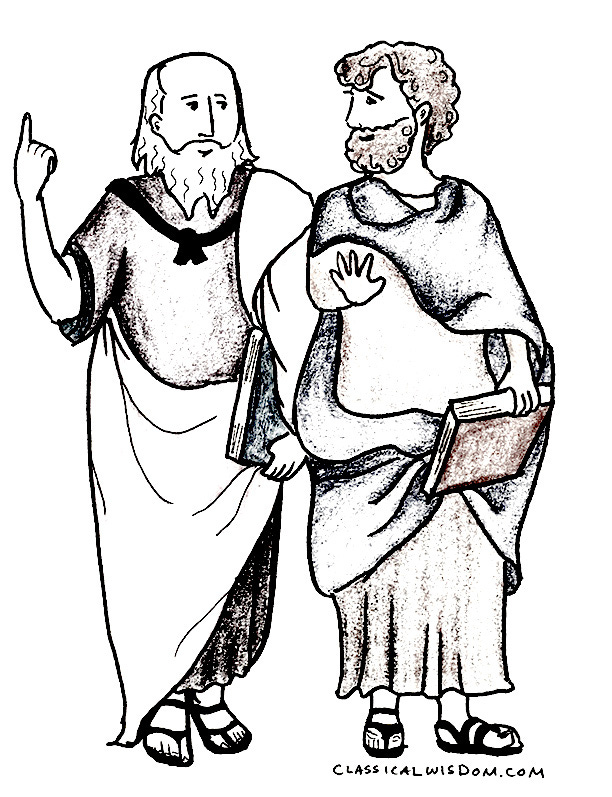Hello!
This week’s lesson is a very important lesson, indeed. While art, mythology, science and history are wonderful for teaching us so many interesting lessons, friendship is critical to our happiness...
And yet... we rarely think about what friendship is, what makes a good friend and equally important, how we can be better friends ourselves!
Today, we’ll try to fix that!
Please enjoy a story about the great ancient Greek philosopher Aristotle and how he understood friendship. Also included are some fun activities, discussion points as well as a Match the Idioms worksheet.
As always, please let us know what you think about this project! And feel free to share the ancient wisdom with any and all future minds in your life:
All the best,
Anya Leonard
Founder and Director
Classical Wisdom and Classical Wisdom Kids
P.S. If you believe in our mission to bring the Classics to the next generation (after all, they are the future stewards of history), considering are donating or gifting a subscription to someone you know. You can do it here:
Aristotle and Friendship
Friends are important. We think about our friends all the time, whether they are near or far. But often, we don’t think about what Friendship IS. What makes a good friend? Are all friendships the same?
The ancient Greek philosophers did think about this - a lot! Especially Aristotle.
Aristotle was a philosopher and a polymath. This means he knew about so many different subjects, like math and sciences, as well as arts and history. He wrote about poetry and zoology and everything in between. Aristotle also thought a lot about friendship. He said that it is extremely important and is essential to our happiness.
Friends encourage us to be generous and humble if we are wealthy or help and support us if we are not. Young people need friends who can teach them. Old people need friends to take care of them.
But what is Friendship? Aristotle says there are three different types of friends.
The first is a friendship that is useful. It’s not exactly good in itself, but it leads to or makes something that is good. This can be a friendship found with your science partner, on your sports team or at a book or theater club.
Next is a friendship that is pleasant or pleasurable. Aristotle does not think that pleasure is the highest good, but he does say that being pleasant is a type of goodness. This is the kind of friend you get together and have a nice chat… but maybe you don’t discuss Aristotle.
The last is the one we should look for… the “good” because it is based on virtue. This is the BFF, the best friend you can call at any time for any reason, who appreciates you for who you are. They want good things for you because they care, not because it will be good for them. This is a friendship in the fullest meaning.
While the first two types of friendships are common and happen a lot, they don’t always last. The “good” friendships are very rare, but can last your whole lifetime.
True friends take a long time to get to know each other. Often, you must go through hard times together so that you can appreciate each other. While these friends are hard to find, once you do, you should work hard to keep them!
Review/Discussion:
What types of friendships are there, according to Aristotle?
What makes a truly good friend?
Aristotle says a ‘Good” friendship is based on Virtue...but what is Virtue?
How can you be a better friend?
If you find a truly good friend, how can you keep that friendship?
Do you think friends can change between types? Or be more than one kind?
Aristotle was a Polymath - which means he knew a lot about a lot of very different subjects. Do you think it’s good to be a polymath? What are your favorite subjects? Do you have many? Do you think it was easier to be a polymath in the time period of Aristotle or Leonardo DiVinci?
Activities:
Friend Idioms! We have lots of fun ways to describe friendships. Can you guess which one is which? Do the activity on the attached sheet.
Keep reading with a 7-day free trial
Subscribe to Classical KIDS to keep reading this post and get 7 days of free access to the full post archives.





